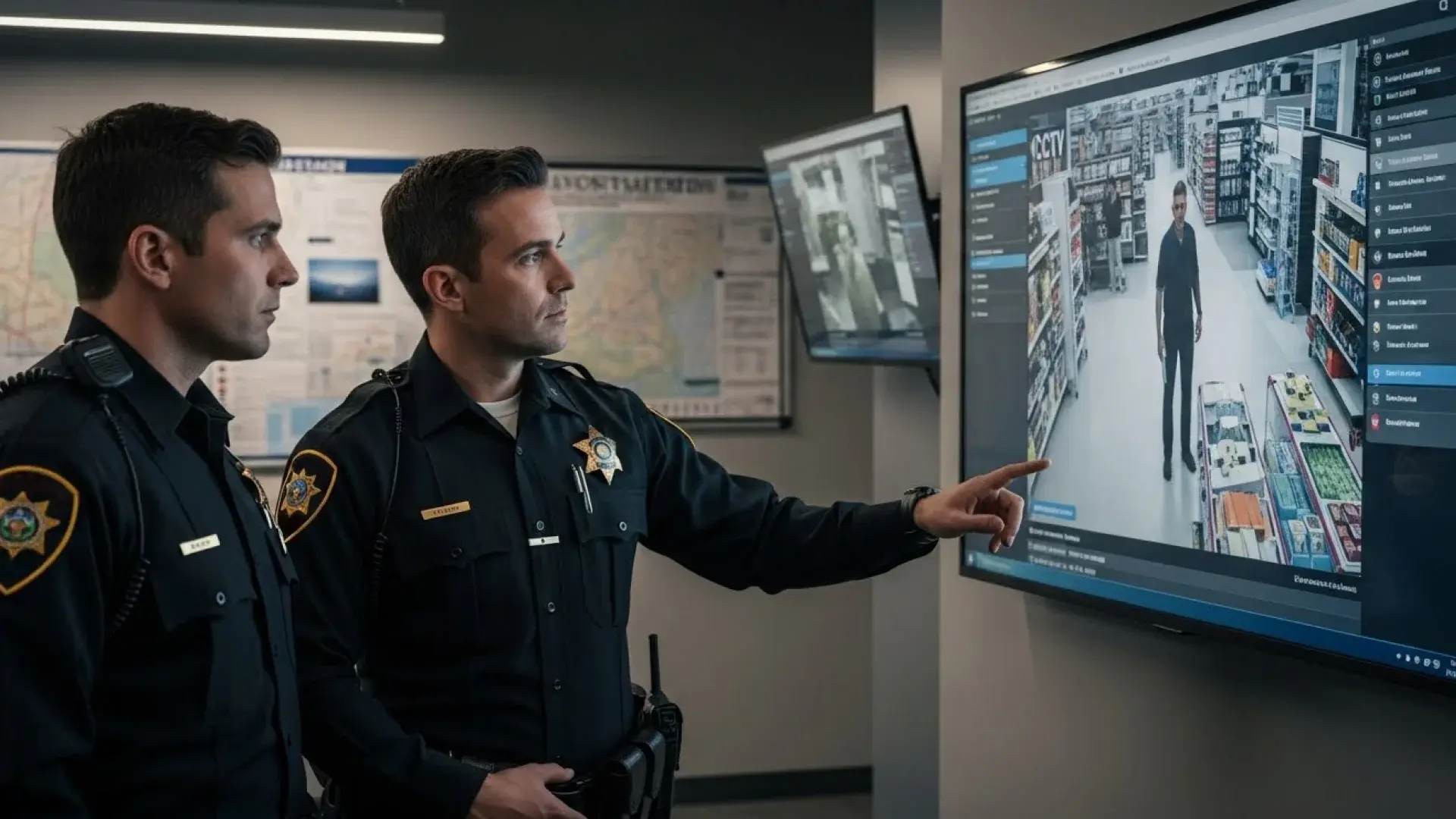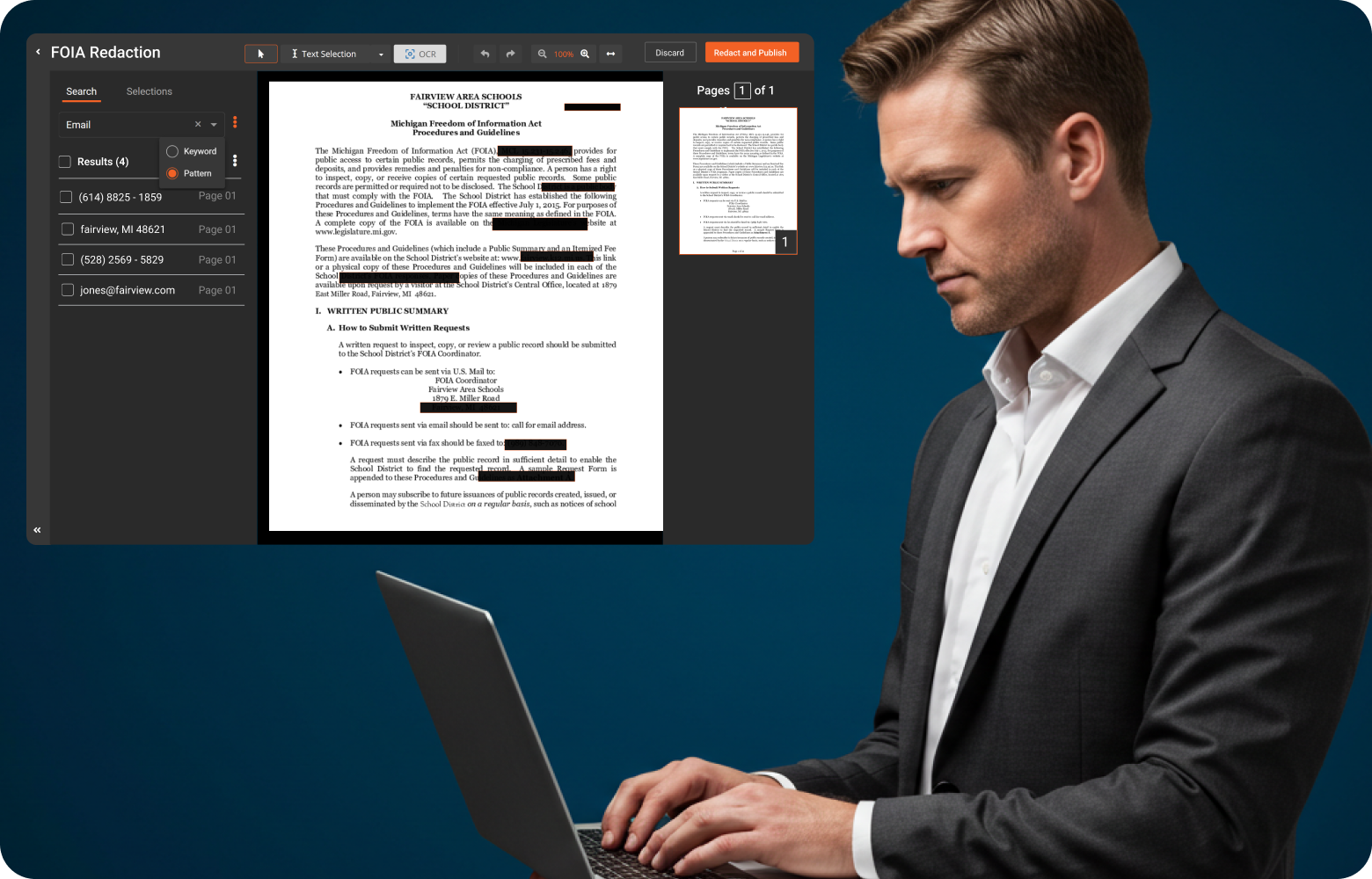Unified AI Redaction: Essential for Government Agencies by 2025
by Ali Rind, Last updated: December 1, 2025, ref:

The redaction crisis is growing, and public agencies feel it most.
Across state and county governments, FOIA/FOIL officers, prosecutors, and law enforcement agencies are facing an unprecedented surge in digital evidence and public records requests. What used to be a manageable flow of scanned PDFs has evolved into a flood of:- Body-cam videos
- Dash-cam recordings
- 911 audio
- Interview room footage
- Mixed-mode PDF documents
- Archived case files scanned decades ago
Teams that once relied on manual tools like Adobe, Nuance, or standalone tools now find themselves juggling four to six separate products, each doing only part of the job, resulting in delays, backlogs, overtime, and growing compliance risks.
Why a Unified AI Redaction Solution is No Longer Optional
Agencies need more than a “tool.” They need a system that can handle every evidence format, automate the heavy lifting, and maintain compliance with FOIA/FOIL and court rules. A modern redaction platform must deliver:
AI-Powered Redaction Across All Media Types
From detecting names in PDFs…
to identifying faces and license plates in video…
to muting PII in audio…
AI dramatically reduces manual work while improving accuracy.
Bulk Processing for High-Volume Requests
Many agencies receive:
- Subpoenas with 10,000+ pages
- FOIL requests involving years of video evidence
- Internal reviews spanning thousands of audio files
Automatic ingestion + automatic detection = hours saved, not hours spent.
Transcript-Based Video and Audio Redaction
One of the most sought-after capabilities today is transcription-driven redaction, where you search the transcript for sensitive terms and redact the corresponding audio/video instantly.
Support for Old Scans and Mixed-Mode PDFs
Many agencies possess decades-old records with:
- Skewed scans
- Faded text
- Handwritten notes
- Embedded images
Advanced OCR and mixed-mode processing ensure PII is detected in both text and images inside PDFs.
Secure Sharing, Chain of Custody, and Audit Logs
Compliance is not just about redacting—it’s also about proving who accessed what, when, and how.
A unified solution must include:
- Permission-based sharing
- Expiring secure links
- Full chain-of-custody logs
- Download restrictions
The Future of Redaction is Automation & Intelligence
AI is improving rapidly. Agencies that adopt modern solutions today will soon benefit from:
- LLM-driven automatic PII identification
- Semantic and natural-language evidence search
- Automated report generation and summarization
- On-prem and CJIS-aligned cloud deployments
With request volumes increasing and staffing rarely keeping pace, the agencies that modernize now will be the ones best prepared for the next decade.
If you’re ready to safeguard your call recordings and automate PCI compliance with ease, our team is here to help. Contact us today to discuss your requirements or get expert guidance tailored to your call center environment.
Want to experience the platform firsthand? Start your free trial and see how quickly you can ingest, redact, and export fully secure recordings with zero manual effort.
Final Thoughts
Government agencies deserve redaction technology that matches the complexity of their work. Manual tools no longer cut it. A unified platform that automatically redacts PDFs, videos, audios, and images—while ensuring compliance and reducing workload—is now essential.
If your agency is still using multiple disconnected tools, now is the time to explore a consolidated, AI-powered redaction solution.
Jump to
You May Also Like
These Related Stories

How to Redact Body-Cam Footage for FOIA Requests
.jpg)
5 Best Practices for Managing FOIA Requests for Public Schools


No Comments Yet
Let us know what you think